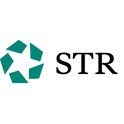Gloomy Picture for Business Travel, but a Small Ray of Hope
With summer ending and the much-needed leisure travel surge waning, much of the industry’s attention and focus shifts to business travel. For true recovery to occur, the travel and hospitality industry needs to see business travel return to pre-pandemic levels. Unfortunately, the prospects for such a return do not appear good at the moment.
The Delta variant continues to disrupt the reopening of economies in many parts of the world and, indeed, some countries are grappling with previously unseen levels of infections.
The timelines for a full-time return to office, the indicator of the return of business travel, continue to get pushed back with Apple, Coca-Cola, Microsoft and Google all recently announcing delays to their original return-to-office plans.
Recent STR data shows that weekday demand, an indicator of business travel, is continuing to trend downward as the U.S. enters the post-Labor Day period, when business travel traditionally picks up.
From STR’s July 2021 research among a sample of global consumers, we saw a continuation of negative sentiment toward business travel. And the negativity seen earlier in the year has become somewhat worse six months later. The latest data shows that more consumers are less likely to travel for business post-pandemic (39% in July 2021 compared with 28% in February 2021).
However, one positive note is the increase in those who stated they are as likely to travel once the pandemic is over. This shift is likely due to increased clarity regarding travel in general and clearer business travel policies for organizations compared with earlier in the year.
The negative sentiment regarding business travel was echoed elsewhere in our research. A sizeable majority of those who traveled for business before the pandemic agreed that the amount of business travel in the future was unlikely to resemble pre-COVID-19 levels.
Business travel: To zoom or resume?
During a recent conference presentation at IHIF (attended by almost 1,000 people in Berlin), Robin Rossmann, STR’s managing director headlined a slide with the statement: “Business travel – to zoom or resume, that is the question.” Robin summarizes the situation as follows:
“The predicament for business travel right now is similar to a head and heart thought process,” Rossmann said. “There seems to be much desire and excitement about traveling for business, but travel restrictions from governments and organizations as well as risk averse decision making will continue to constrain growth.”
Video meetings have largely been successful throughout the pandemic because of previous relationships. We know each other’s idiosyncrasies and the best ways to communicate and work together. Connecting online was made easier because the groundwork of getting to know each other was already established. The further we get from our pre-pandemic connections, the less effective the virtual setting could become because meetings will be taking place between “strangers.”
The pandemic has reminded us of the importance of face-to-face interactions in building relationships and sparking creativity. Put differently, it’s reminded us of a basic human emotional need to have direct, in-person encounters with other human beings.
As organizations return to the office, and once the landscape for travel improves, it seems likely that the need for in-person connections will be increasingly met. This prospect offers a ray of hope for operators reliant on business travelers. However, the extent to which business travel rebounds remains a big question in the industry.
The business traveler of the future will be different
Just as leisure travelers have changed their preferences and expectations, we believe the behavior of business travelers will change too. We cannot say exactly how, but it is sensible to assume that business travelers will be more intentional about the trips they take and perhaps stay longer at a destination to maximize their time with clients and colleagues. Having been confined to home working and countless online meetings for so long, traveling to meet and interacting with colleagues and clients is likely to have greater levels of impact than ever before.
We hope to explore these hypotheses and other business traveler trends in further Tourism After Lockdown research and blogs.
If you would like to find out more about how STR can help you get closer to your customers during these volatile and uncertain times, see what we are doing with consumer research.
About STR
STR provides premium data benchmarking, analytics and marketplace insights for the global hospitality industry. Founded in 1985, STR maintains a presence in 15 countries with a corporate North American headquarters in Hendersonville, Tennessee, an international headquarters in London, and an Asia Pacific headquarters in Singapore. STR was acquired in October 2019 by CoStar Group, Inc. (NASDAQ: CSGP), the leading provider of commercial real estate information, analytics and online marketplaces. For more information, please visit str.com and costargroup.com.




